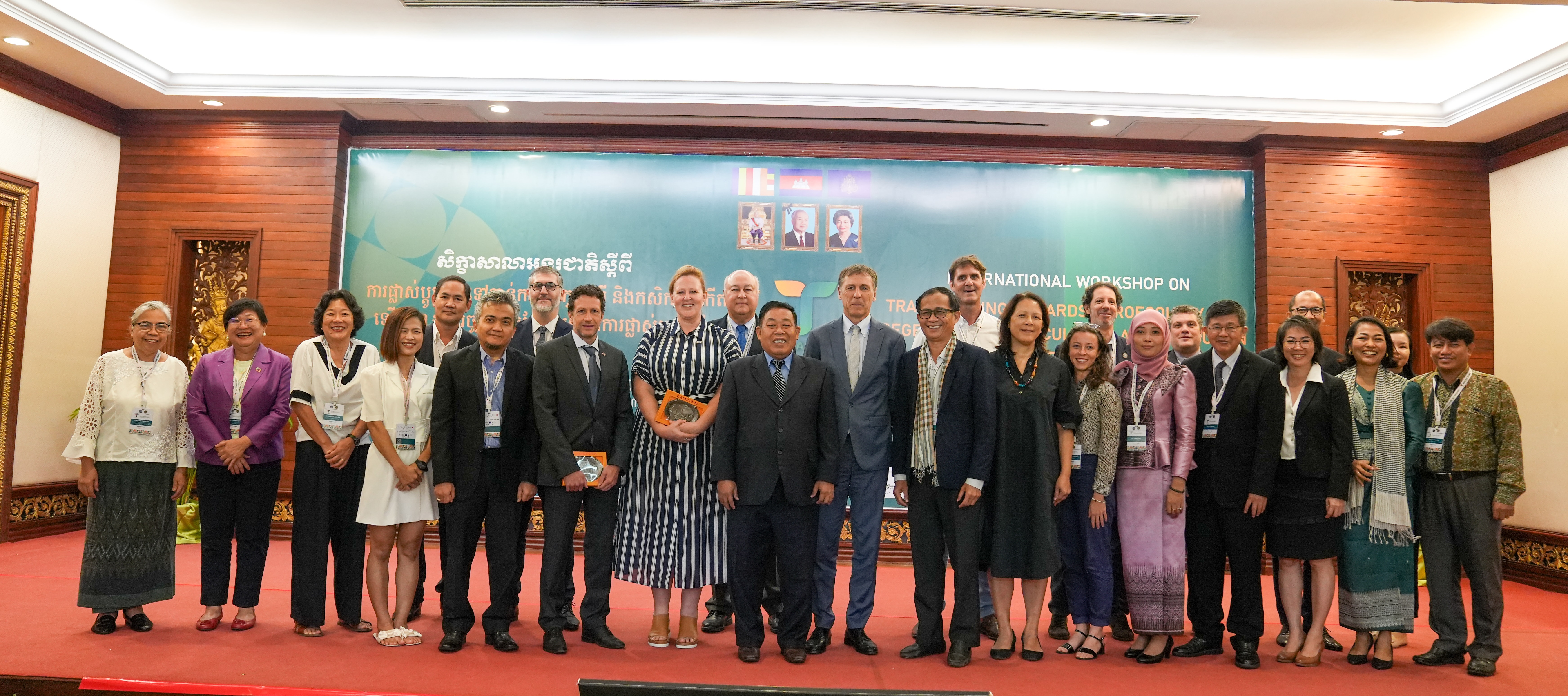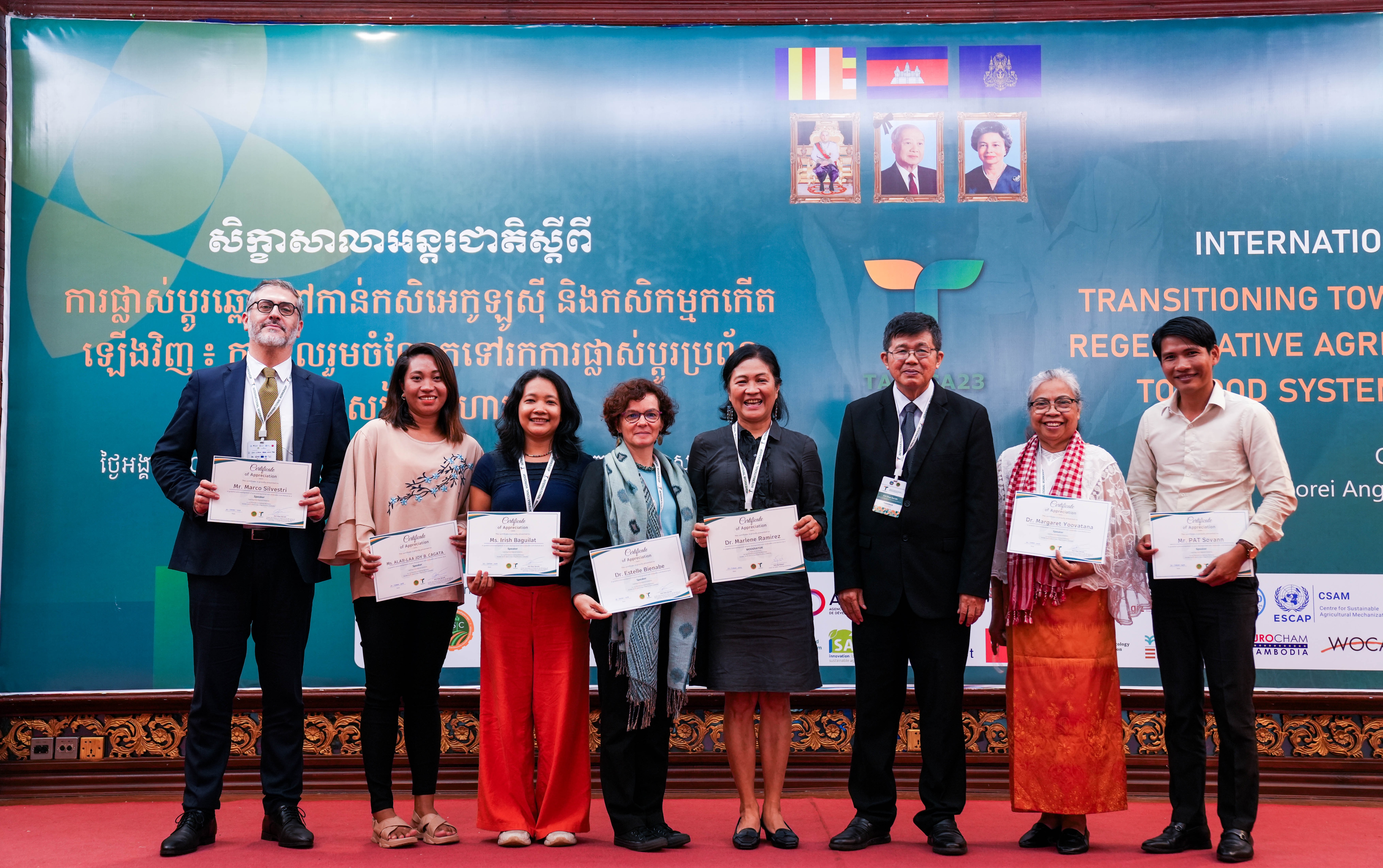CSAM supports advancing the transformation of food systems through mechanization solutions for conservation agriculture at TARASA 23 workshop in Siem Reap, Cambodia

The International Workshop on ‘Transitioning Towards Agroecology and Regenerative Agriculture: A Contribution to Food Systems Transformations (TARASA23)’ was held from 24 to 27 October 2023 in Siem Reap, Cambodia, co-organized by the Centre for Sustainable Agricultural Mechanization of the United Nations Economic and Social Commission for Asia and the Pacific (ESCAP-CSAM) with the Ministry of Agriculture, Forestry and Fisheries (MAFF) of Cambodia; the Cambodian Conservation Agriculture and Sustainable Intensification Consortium (CASIC); the Food and Agriculture Organization (FAO); the French Agricultural Research Centre for International Development (CIRAD); Swisscontact; as wells as the Agroecology and Safe Food Systems Transition (ASSET) and Innovation for Sustainable Agriculture (ISA) initiatives.
The event falls within the long-standing partnership of ESCAP-CSAM with CASIC which in the past years resulted in successful workshops and webinars on ‘Promoting Conservation Agriculture, Sustainable Intensification, and Agro-ecology in Asia-Pacific’; and Regenerative Agriculture through Agroecology, Sustainable Agricultural Mechanization, Bio sequestration, and Water Management.
Experts and participants from the Asia-Pacific region and beyond shared the experiences and insights on how to support the transitioning towards the regenerative agriculture. CSAM presented its integrated straw management pilot projects and other regional initiatives contributing to conservation agriculture. Several experts from CSAM’s network also provided a perspective related to agricultural mechanization solutions. Prof. Zhang Xirui from Hainan University, China, introduced the challenges and mechanized solutions for shredding and returning the banana straw in tropical areas in the session on ‘Technologies and Innovations in the field of Agroecology (AE) and Regenerative Agriculture (RA).’ In the session on ‘Human Skills Development in the Field of AE and RA’, Mr. Mujeeb Ur Rehman from South Asia Conservation Agriculture Network (SACAN) in Pakistan, presented on extension services focused on Conservation Agriculture (CA) to address the environmental issues caused by traditional agricultural practices as an ecosystem-based approach in South Asia. In the session on ‘Support to Innovation Implementation in the Field of AE and RA’, Mr. Eric Reynoso, Program Head of Emerging Innovations for Growth from Southeast Asian Regional Center for graduate Study and Research in Agriculture (SEARCA), Philippines, introduced the role of agricultural mechanization to enhance ecosystem health and soil vitality. These advanced technologies were also presented in the same session by Dr. Sandip Gangil, Principal Scientist from ICAR Central Institute of Agricultural Engineering in India, including energy-efficient equipment, precision farming technologies, AI-driven data applications, and others.
The workshop was attended by over 190 participants from 21 countries and 95 institutions. It featured several keynote speeches and presentations from regional and global initiatives, an innovation fair showcasing exhibitions from 20 organizations, and included field visits to showcase local agroecological and sustainable farming practices. The workshop fostered the exchanges within the Asia-Pacific region on agroecology and regenerative agriculture, with a primary objective of advancing the transformation of farming and food systems, as a follow up to the Food Systems Summit.





